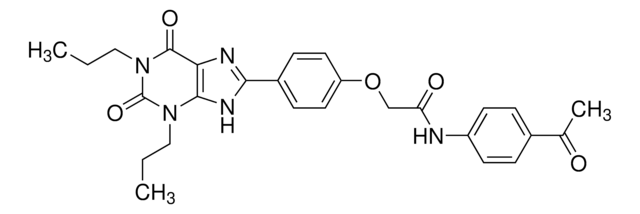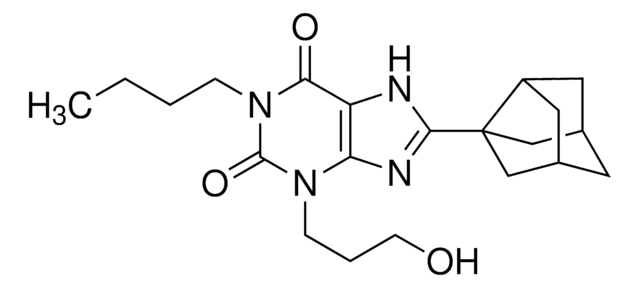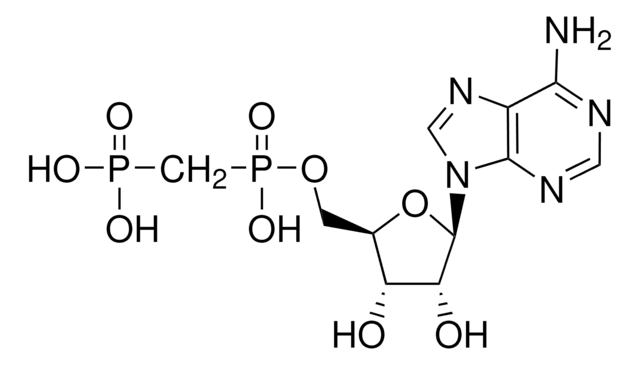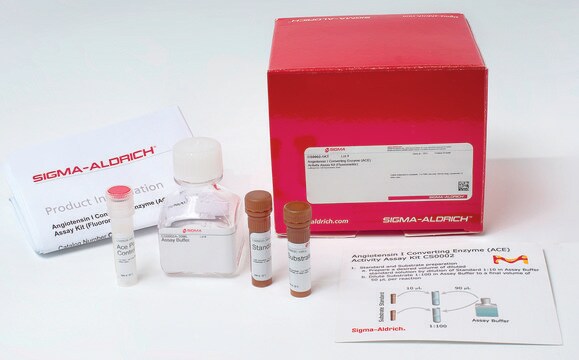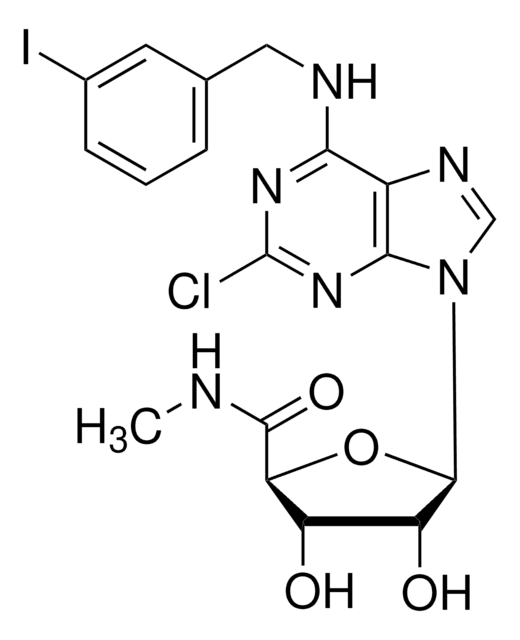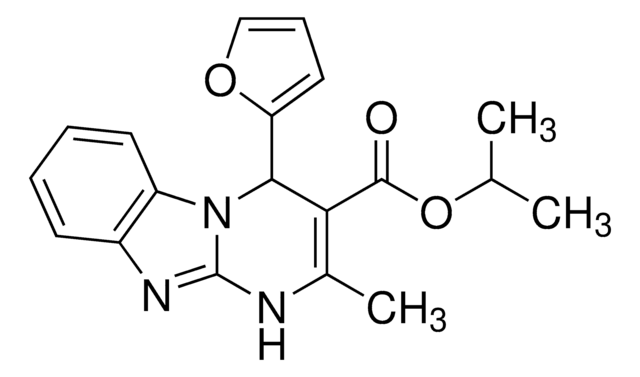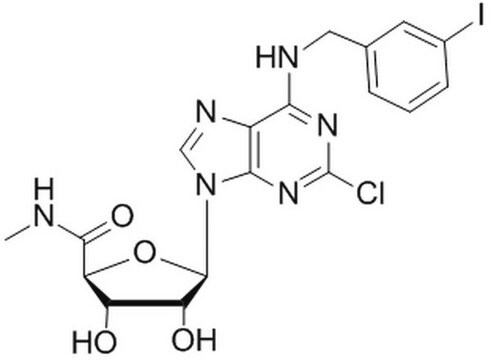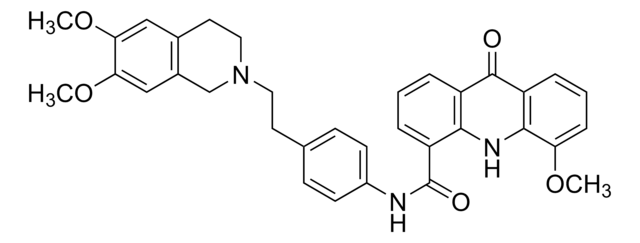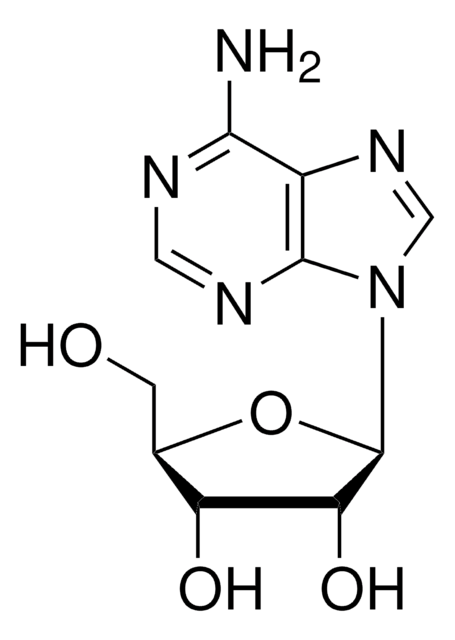M1809
MRS 1523
>98% (HPLC)
Synonyme(s) :
3-Propyl-6-ethyl-5-[(ethylthio)carbonyl]-2 phenyl-4-propyl-3-pyridine carboxylate
About This Item
Produits recommandés
Niveau de qualité
Essai
>98% (HPLC)
Forme
oil
Couleur
colorless to light brown
Solubilité
DMSO: >10 mg/mL
H2O: insoluble
Conditions d'expédition
wet ice
Température de stockage
2-8°C
Chaîne SMILES
CCCOC(=O)c1c(CCC)c(C(=O)SCC)c(CC)nc1-c2ccccc2
InChI
1S/C23H29NO3S/c1-5-12-17-19(23(26)28-8-4)18(7-3)24-21(16-13-10-9-11-14-16)20(17)22(25)27-15-6-2/h9-11,13-14H,5-8,12,15H2,1-4H3
Clé InChI
UUSHFEVEROROSP-UHFFFAOYSA-N
Informations sur le gène
human ... ADORA3(140)
rat ... Adora1(29290) , Adora2a(25369) , Adora3(25370)
Application
Actions biochimiques/physiologiques
Caractéristiques et avantages
Informations légales
Code de la classe de stockage
10 - Combustible liquids
Classe de danger pour l'eau (WGK)
WGK 3
Point d'éclair (°F)
Not applicable
Point d'éclair (°C)
Not applicable
Équipement de protection individuelle
Eyeshields, Gloves
Faites votre choix parmi les versions les plus récentes :
Déjà en possession de ce produit ?
Retrouvez la documentation relative aux produits que vous avez récemment achetés dans la Bibliothèque de documents.
Les clients ont également consulté
Notre équipe de scientifiques dispose d'une expérience dans tous les secteurs de la recherche, notamment en sciences de la vie, science des matériaux, synthèse chimique, chromatographie, analyse et dans de nombreux autres domaines..
Contacter notre Service technique

